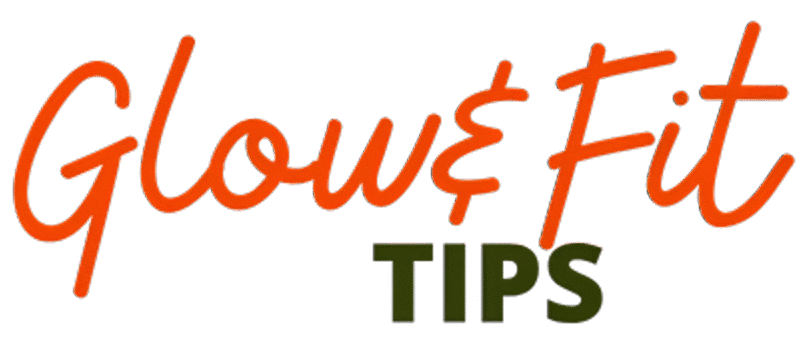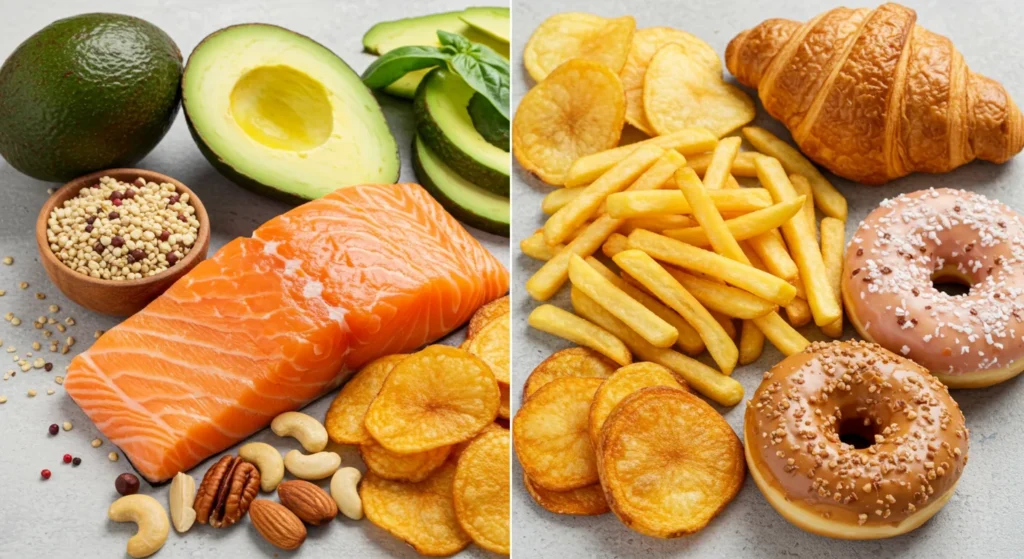Fat is not the enemy! Your body needs fat to function properly. But not all fats are created equal. Some are essential for your hormones, brain, and energy, while others can lead to weight gain, heart disease, and other health problems. For women especially, understanding the difference between good and bad fats is important for maintaining energy, hormonal balance, and overall well-being.
What Are Fats and Why Do We Need Them?
Fats are one of the three major nutrients your body uses for energy, along with protein and carbohydrates. They help absorb vitamins, support cell growth, protect organs, and keep your body warm. Certain fats are also vital for hormone production, which is especially important for women’s reproductive health and emotional balance.
Types of Fats: The Good vs. The Bad
1. Good Fats (Healthy Fats) These are fats your body loves and needs:
- Monounsaturated fats – found in avocados, olive oil, nuts, and seeds. These help reduce bad cholesterol and lower the risk of heart disease.
- Polyunsaturated fats – Includes omega-3 and omega-6 fatty acids. Found in fatty fish (like salmon), flaxseeds, chia seeds, and walnuts. They help reduce inflammation, support brain health, and regulate hormones.
- Natural saturated fats (in moderation) – Found in foods like ghee, coconut oil, and dark chocolate. They support hormone health and can be part of a balanced diet.
Benefits of Good Fats for Women
- Supports healthy skin and hair
- Balances hormones and mood
- Boosts brain power and memory
- Improves heart health
- Helps with weight management when eaten mindfully
2. Bad Fats (Unhealthy Fats) These are fats that can cause harm if consumed often:
- Trans fats – Found in fried foods, packaged snacks, baked goods, and margarine. These increase bad cholesterol and lower good cholesterol, raising the risk of heart disease.
- Refined or processed saturated fats – Often found in fast food and processed meat. These can contribute to inflammation and other chronic health issues.
Risks of Bad Fats
- Increases risk of obesity
- Causes hormonal imbalance
- Contributes to heart problems
- This may lead to brain fog or low energy
How to Make Healthier Fat Choices
- Read labels: Avoid anything with “partially hydrogenated oils.”
- Cook smart: Use olive oil or ghee for cooking instead of vegetable shortening or margarine.
- Snack wisely: Choose nuts, seeds, or a piece of dark chocolate instead of chips or cookies.
- Add omega-3s: Eat fatty fish 2–3 times a week or take a high-quality fish oil supplement.
Common Myths About Fat (and the Truth!)
- Myth: Eating fat makes you fat.
- Truth: Overeating any nutrient can cause weight gain. Healthy fats, in the right amount, support weight loss and satiety.
- Myth: All saturated fats are bad.
- Truth: Natural saturated fats (like ghee or coconut oil) can be healthy in moderation.
- Myth: Low-fat diets are best for women.
- Truth: Very low-fat diets can lead to hormone imbalance, mood swings, and fatigue.
Conclusion
Fat is not your enemy—it’s your ally when you choose the right kind. Understanding the difference between good fats and bad fats empowers you to make smarter food choices that support your energy, mood, heart, and hormones. By including healthy fats in your daily meals and avoiding harmful ones, you can feel better, stay fit, and live healthier.
- Read next: 10 Effective Healthy Weight Loss Tips for Women
-
Learn more at Harvard School of Public Health – Types of Fat





